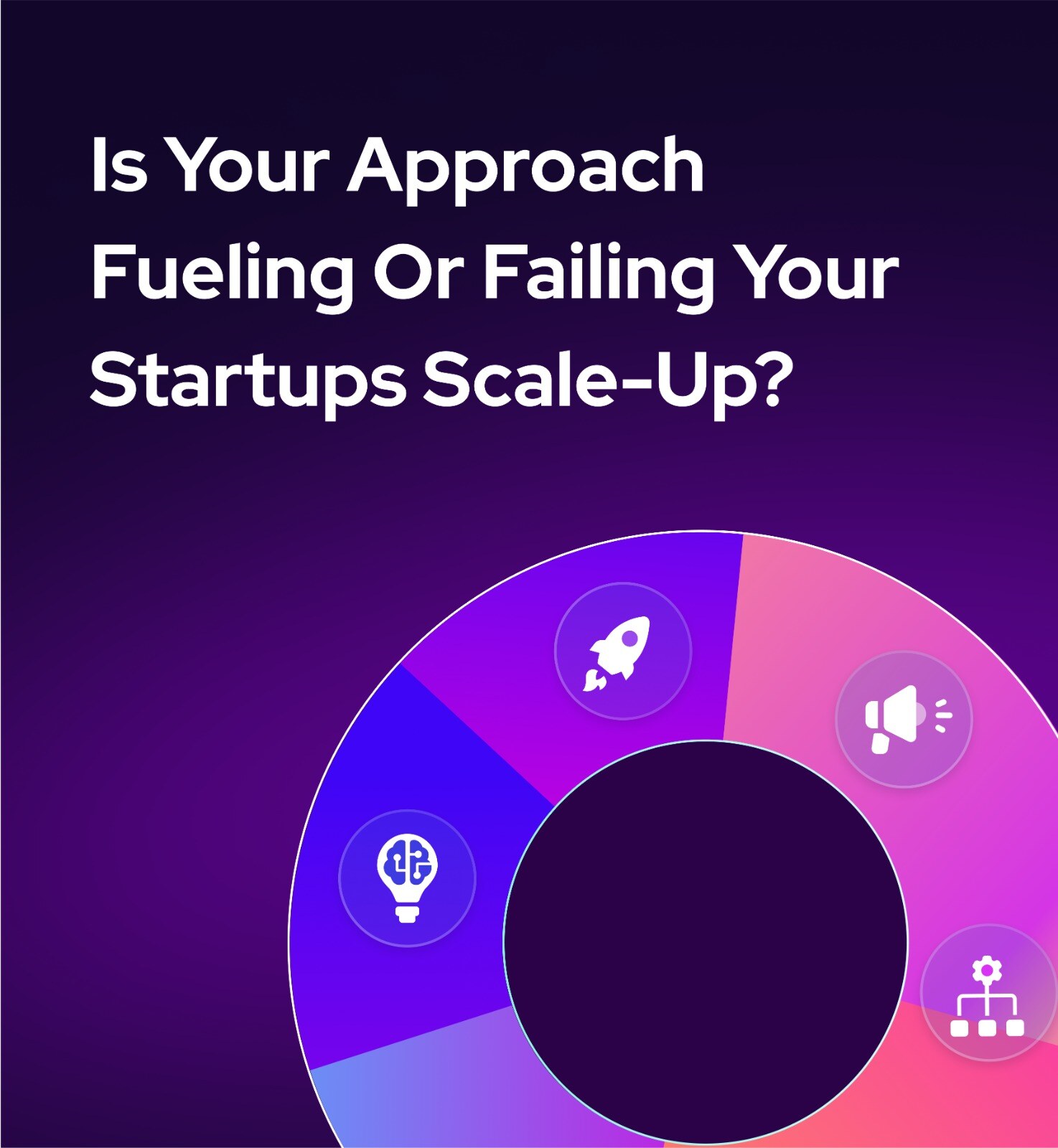Founders' Biggest Mistake: Working In, Not On Their Startup
In the fast-paced world of startups, founders often find themselves wearing multiple hats and juggling countless responsibilities. However, amidst the chaos of daily operations, many fall into a common trap that can stifle growth and hinder success.
The biggest mistake founders make is working for their startup instead of on it. This critical error not only limits the company's potential but also prevents founders from fulfilling their true role as visionaries and leaders.
Founders' Biggest Mistakes
In this article, we'll explore why this mistake happens, its consequences, and most importantly, how to avoid it to build a thriving, scalable business.
- Understanding the Founder's Dilemma
The founder's dilemma is a paradox that many entrepreneurs face as their startups grow. On one hand, they feel compelled to be deeply involved in every aspect of the business, believing that their hands-on approach is crucial for success. On the other hand, this level of involvement often prevents them from focusing on strategic planning, innovation, and scaling the company.
Why founders fall into this trap:
- Emotional attachment to their creation
- Fear of losing control
- Belief that no one can do the job as well as they can
- Lack of trust in delegating responsibilities
The consequences of this mindset can be severe. As the company grows, founders find themselves increasingly bogged down by day-to-day tasks, leaving little time for strategic thinking and long-term planning. This not only stunts the company's growth but also leads to founder burnout and a loss of the initial vision that drove the startup's creation.
- The True Role of a Founder
To overcome this common pitfall, it's essential to understand the true role of a founder. Contrary to popular belief, a founder's primary job is not to be the best salesperson, developer, or marketer in the company. Instead, their role is to:
- Set the vision and strategy for the company
- Build and lead a talented team
- Secure funding and manage investor relationships
- Make critical decisions that shape the company's future
- Foster innovation and drive growth
Renowned entrepreneur and investor Steve Blank puts it succinctly: "A founder's job is to build a company that can operate without them." This perspective shift is crucial for long-term success and scalability.
- The Importance of Working ON the Business
Working on the business, rather than in it, is a concept popularized by Michael E. Gerber in his book "The E-Myth Revisited." This approach emphasizes the need for founders to focus on strategic activities that drive growth and create systems for the business to operate efficiently.
Key activities founders should prioritize:
- Strategic planning and goal setting
- Developing and refining business processes
- Building a strong company culture
- Networking and forming strategic partnerships
- Staying informed about industry trends and innovations
By focusing on these high-level activities, founders can create a scalable business model that doesn't rely solely on their personal efforts. This approach not only leads to faster growth but also builds a more resilient and valuable company in the long run.
- The Cost of Getting Trapped in Daily Operations
When founders become entrenched in daily operations, the costs to the business can be significant:
- Stunted growth: Without strategic focus, the company may miss crucial opportunities for expansion and innovation.
- Limited scalability: A business that relies too heavily on the founder's personal involvement is inherently difficult to scale.
- Team disempowerment: When founders micromanage, it prevents team members from taking ownership and developing their skills.
- Missed learning opportunities: Founders who don't make time for personal development and strategic learning fall behind in a rapidly evolving business landscape.
- Increased stress and burnout: Trying to do everything leads to exhaustion and can negatively impact the founder's health and personal life.
A study by the Startup Genome Project found that founders who spend more time on product development and less on building a team are 15% less likely to scale successfully. This statistic underscores the importance of founders focusing on building a strong team and systems rather than getting caught up in operational details.
- Strategies for Shifting Your Focus
Making the transition from working in your business to working on it requires a conscious effort and strategic approach. Here are some key strategies to help founders make this crucial shift:
- Delegate and empower: Trust your team with responsibilities and give them the authority to make decisions. This not only frees up your time but also helps develop future leaders within your organization.
- Implement systems and processes: Create standardized procedures for routine tasks. This ensures consistency and reduces the need for your constant involvement.
- Set aside dedicated strategy time: Block out time in your calendar specifically for high-level thinking and planning. Treat this time as sacrosanct, just as you would an important meeting with an investor.
- Invest in personal development: Attend workshops, conferences, and networking events. The insights and connections gained can be invaluable for your company's growth.
- Hire a coach or mentor: Having an experienced advisor can provide perspective and help you stay focused on your role as a leader and visionary.
- Use technology to your advantage: Implement project management and automation tools to streamline operations and reduce the need for your direct involvement in every task.
- The Power of Continuous Learning and Improvement
One of the most critical aspects of working on your business is the commitment to continuous learning and improvement. Founders who prioritize their own education and skill development are better equipped to lead their companies through various stages of growth.
Benefits of continuous learning for founders:
- Staying ahead of industry trends and innovations
- Developing better leadership and management skills
- Gaining insights from other successful entrepreneurs
- Identifying new opportunities for business growth
- Improving decision-making abilities
However, many founders cite lack of time as a reason for not investing in their own development. This mindset is counterproductive and can lead to stagnation. As management guru Peter Drucker famously said, "The best way to predict the future is to create it." By dedicating time to learning and improvement, founders are actively shaping a better future for their companies.
Conclusion
The biggest mistake founders make – working for their startup instead of on it – is a common pitfall that can severely hinder a company's growth and success. By understanding the true role of a founder, prioritizing strategic activities, and implementing systems that allow for scalable growth, entrepreneurs can avoid this trap and build thriving businesses.
Remember, your job as a founder is not to be the best at every task within your company. Instead, your role is to build a company that can operate and grow without your constant involvement in day-to-day operations. This shift in perspective and approach is crucial for long-term success and scalability.
Are you a founder of a digital product company generating at least 6 figures and want to build the next unicorn?
Then the Scale Up Methodology is for you. By avoiding the common mistake of getting trapped in daily operations and focusing on strategic growth, you can leverage this methodology to take your startup to the next level.
Don't let the day-to-day grind hold you back from realizing your company's full potential.
Disclaimer
This blog post was initially generated using Inno Venture AI, an advanced artificial intelligence engine designed to support digital product development processes. Our internal team has subsequently reviewed and refined the content to ensure accuracy, relevance, and alignment with our company's expertise.
Inno Venture AI is a cutting-edge AI solution that enhances various aspects of the product development lifecycle, including intelligent assistance, predictive analytics, process optimization, and strategic planning support. It is specifically tailored to work with key methodologies such as ADAPT Methodology® and Scaleup Methodology, making it a valuable tool for startups and established companies alike.
Inno Venture AI is currently in development and will soon be available to the public. It will offer features such as intelligent product dashboards, AI-enhanced road mapping, smart task prioritization, and automated reporting and insights. If you're interested in being among the first to access this powerful AI engine, you can register your interest at https://innoventure.ai/.

Take The Test
You May Also Like
These Related Stories

Startup Founder Burnout: 5 Crucial Mistakes They Do

Iterative Approach to Product Discovery

